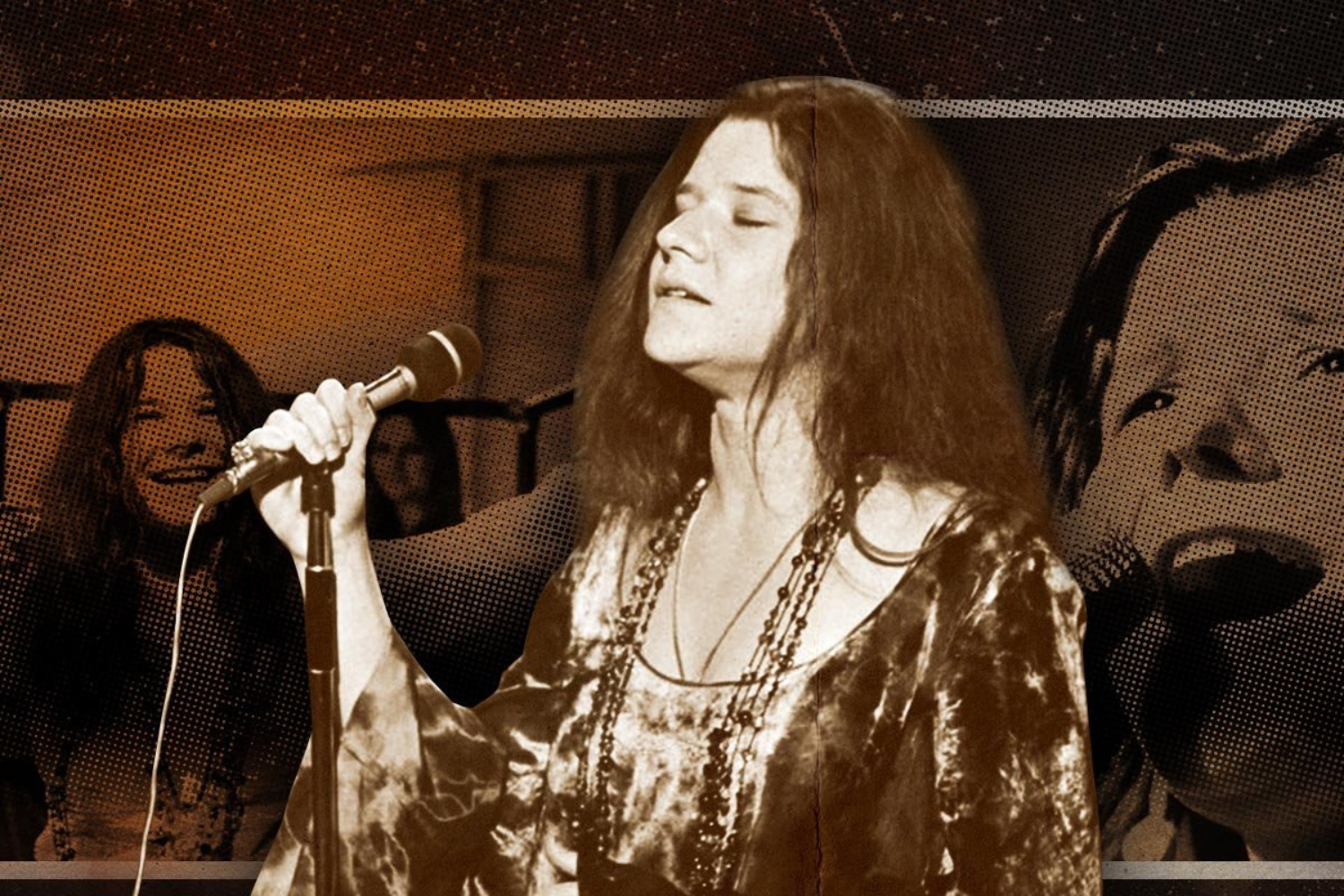Janis Joplin became the second artist to achieve a posthumous number one hit in the United States with the rollicking country blues rocker “Me and Bobby McGee.” This achievement occurred within four months of her terrible death, which was caused by an overdose of heroin. Despite the fact that it was her lone chart #1, it brought her the wider acclaim that her distinctive approach to blues music and charismatically soulful vocals had long deserved.
The singer’s recording of the song begins as a gently swaying country ballad, with Joplin’s noticeable East-Texan accent serving as its most distinguishing element. The song then swells to a blues-rock crescendo, which brings her signature deep-throated rasp to the forefront of the performance. In the background, Joplin’s band is swinging as hard as a deadbeat boxer. Richard Bell on the keyboard and John Till on the lead guitar are ramping up the jam at precisely the correct moment in Joplin’s slipstream.
There is a possibility that Joplin’s rendition of “Me and Bobby McGee,” which was also included on her seminal album Pearl, is the single most definitive rendition. When she finally got around to recording the song, however, it had already been covered by three other musicians. Roger Miller, a country singer who specializes in honky-tonk music, was the first recording artist to release it as a single in 1969. The following year, Canadian Gordon Lightfoot released his rendition of the song. Although both of their renditions were played on country radio stations and made a small amount of noise, neither of them was successful enough to enter the mainstream.
Joplin’s recording is the first one that the majority of listeners take in, and it is also the only one that is worth listening to. Considering the personal value that the song held for the late vocalist, this is an appropriate and proper response. Just prior to her passing, she was romantically linked to the song’s creator, who was the third artist to have recorded the track before Joplin. It seems as though she made the decision to perform the song on a whim as a way to pay tribute to her ex-boyfriend.
Who exactly was the individual whom she sung it for?
“Me and Bobby McGee” was very definitely the final song that Joplin finished recording for Pearl before she passed away. During the months of September and October 1970, the composer of the piece was in Peru filming his debut film, The Last Movie. He did not learn about her recording until he learned that she had passed away. Given the fact that her rendition is obviously about him, this must have made the defeat much more terrible for him from a psychological standpoint.
Bobbie McKee, a studio staffer, was the inspiration for the title of the song that Kris Kristofferson had written specifically for Fred Foster, the CEO of his record label. Kristofferson had written the song to fulfill Foster’s request. He based the lyrics on the final scene in Federico Fellini’s neo-realist film La Strada, which was released in 1954. In this scene, the male protagonist Zampanò breaks down after learning about the death of his former sweetheart Gelsomina. This is a tale that lends even more agonizing irony to the fact that Joplin recorded the song just a few days before she passed away.
However, she alters the gender references in the lyrics, making herself the one who is longing after a man named Bobby McGee rather than the other way around. The lyrics of her song are as follows: “Freedom is just another word for nothin’ left to lose.” “Nothin’, and that’s all that Bobby left for me,” she answered. This second phrase is a significant modification of the lyrics written by Kris Kristofferson, which read, “Nothin’ ain’t worth nothin’, but it’s free.” This modification serves to amplify the feeling of emotional loss that she is experiencing.
After Joplin had brought the song to the attention of the general public, Kris Kristofferson made it a regular component of his live performances. This included the shows that he performed in the 1980s and 1990s as a member of the country supergroup The Highwaymen, which also included Johnny Cash, Willie Nelson, and Waylon Jennings. And it is undoubtedly the greatest single piece of art that he leaves behind as a singer-songwriter, following his own passing at the conclusion of a fruitful life in the music and film industries.
